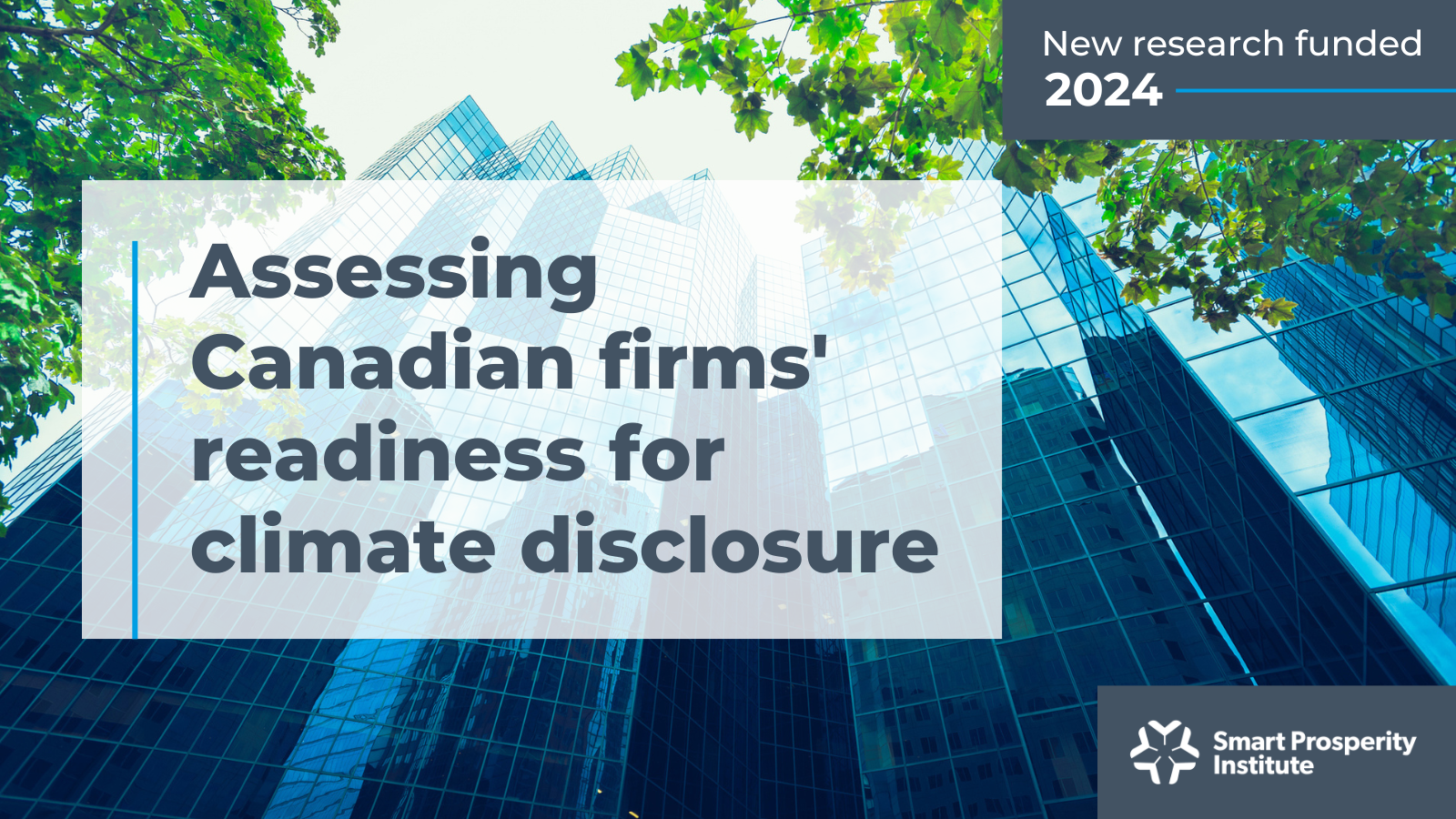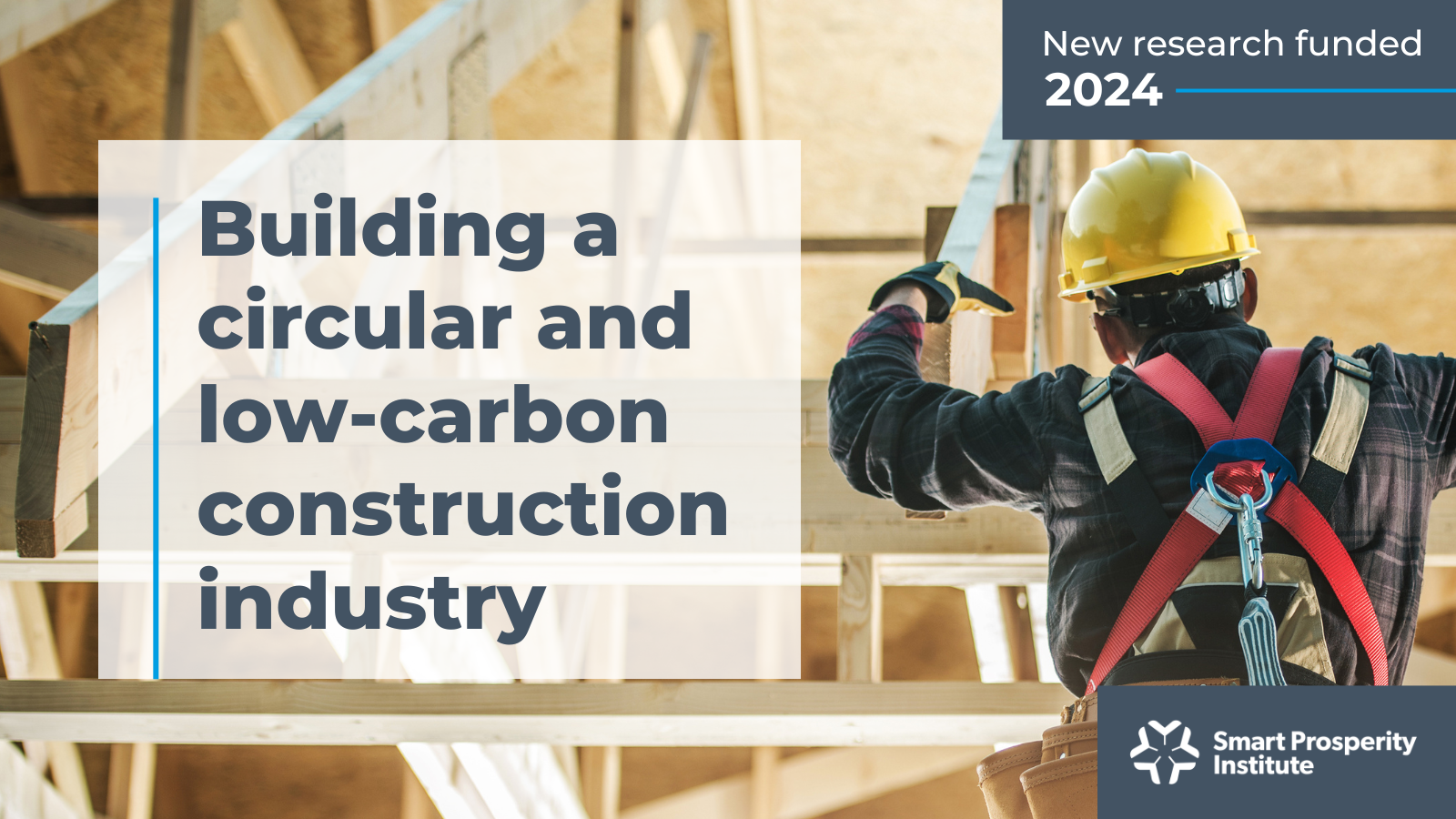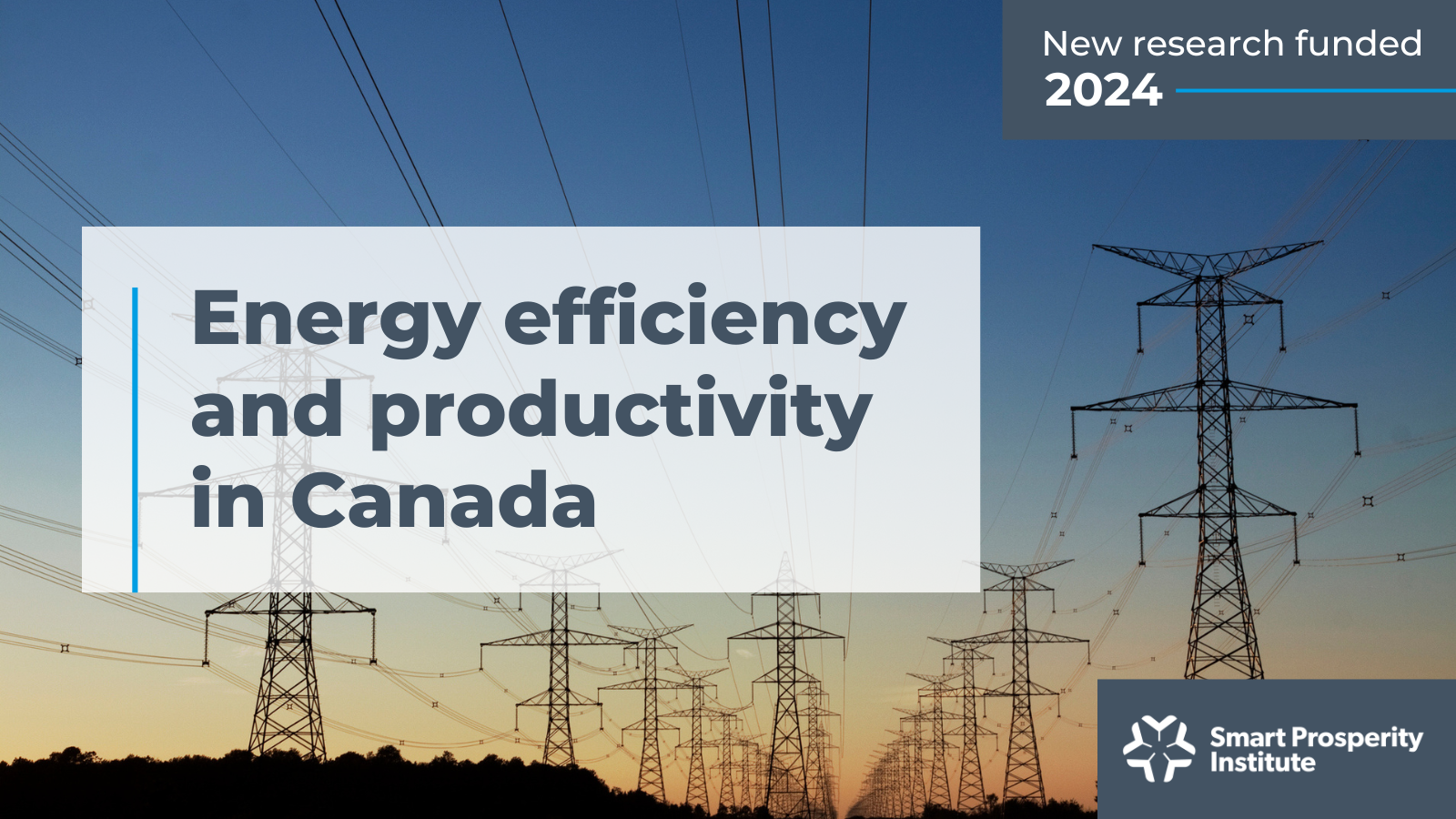
Each year, the Smart Prosperity Institute supports its research network by allocating funds specifically targeted to promote current and impactful scholarly research focused on the green economy. This funding is distributed through the Economics and Environmental Policy Research Network (EEPRN). In response to our recent RfP, we were pleased to receive 19 great project proposals from all across Canada, reflecting a strong interest to contribute to this crucial field.
After a rigorous selection process, we are thrilled to present the final 2024 cohort: six projects chosen to broaden our comprehension of the environment-economy nexus, collectively receiving more than $150,000 in funding over a span of two years.

Dr. Amr ElAlfy and Tia Rebecca Driver (University of Waterloo)
The introduction of the International Financial Reporting Standards on sustainability and climate-related disclosures is expected to enhance the transparency and accountability of how businesses address environmental challenges. This research aims to evaluate how well Canadian firms are prepared to meet the new reporting requirements. Its objectives are to assess the readiness of Canadian firms to adopt climate-related disclosure mandates; and financial performance effects of this adoption. This work supports more widespread reporting of Scope 3 emissions and an enhanced understanding of their carbon footprint among Canadian firms.

Dr. Daina Mazutis and Nubi Afolasade (uOttawa)
Canada aims to cut GHG emissions by 40-45% by 2030, but existing building policies for the construction and demolition sector are insufficient to meet these targets. The adoption of low-carbon solutions and circular economy principles in the sector is low and our understanding of the role of relevant policies in driving industry change is limited. The objective of this project is to enhance our understanding of how sustainability decisions are made within construction and development organizations and to identify opportunities to accelerate progress towards Canada’s climate goals. For this, the project tackles three main research questions:
1) How do sectoral decision-makers make sense of low-carbon and circular economy business models?
2) What is the role of policy in driving change towards low-carbon and circular economy business models?
3) What policies or regulatory changes are needed to better integrate low-carbon and circular economy objectives into construction and demolition projects?

Jonathan Boron, Dr. Andreanne Doyon and Piper French (Simon Fraser University)
There are concerns about Indigenous territories becoming 'sacrifice zones' for energy transition mining and a need to avoid repeating colonial patterns in critical mineral development. As global demand for critical minerals increases, new research is needed to examine the implications for Indigenous communities in Canada. Limited studies have explored critical minerals in the value chain from Indigenous or social justice perspectives, and studies on just energy transition lack focus on supply-chain justice issues of critical mineral development. Key questions anchoring this research include:
What role do Indigenous Nations across Canada play in the advancement of critical mineral development for low-carbon energy transitions?
In what ways do critical mineral development policy regimes in Canada support or create barriers for Indigenous environmental and energy justice?
How do participation processes throughout a mine's lifecycle support or limit Indigenous self-determination, consent, and self-governance?

Anil Gogebakan (University of Calgary)
The misallocation of resources, such as energy, can lead to welfare loss and occurs when distortions redirect resources from their most effective uses. Various factors contribute to misallocation, including tax policies, financial constraints and market power. This research aims to explore the potential welfare loss resulting from the misallocation of energy resources in the Canadian economy. Assessing the economic benefits of optimized energy use without distortions and exploring how uniform policies could reduce energy waste and emissions. The findings of this study can help guide policymakers in developing clean energy policies for optimal energy resource allocation.

Dr. Clifford Atleo and Sarah Ozog (Simon Fraser University)
In 2018, the Haida Nation committed to transform their remote community electrical systems to clean and renewable power. With approximately 10,000,000 litres of diesel burned annually, emissions on Haida Gwaii represent more than 50% of total remote community electricity emissions in the province of British Columbia (BC) and more than 5% of Canada. Working in collaboration with Haida leadership, this project will explore potential decarbonization pathways for Haida Gwaii, analyze economic and policy barriers, identify trade-offs, and provide insight into the multilevel policy solutions required to achieve a clean energy future. The main research question guiding this project is: What are the pathways for a decarbonized future on Haida Gwaii in terms of GHG reductions and costs and what are the economic and policy barriers to its implementation and associative governance/policy solutions?

Felix Fosu and Wenshuang Yu (University of Calgary)
The implementation of low-carbon policies suffers from a lack of coordination across countries and regions, allowing firms to bypass these regulations by relocating their production to areas with less stringent enforcement. This project aims to explore how firms respond to low-carbon regulations, and adapt to them. The research questions anchoring this project are:
How do firms adjust their internal manufacturing strategies versus outsourcing decisions in response to low-carbon emission regulations?
In the face of low-carbon emission regulations, do firms adopt energy-efficient technologies, or do they prefer to import inputs as an alternative strategy?
What are the implications of these firms’ responses for the overall effectiveness of carbon emission regulation?
Congratulations to all the 2024 EEPRN funded project teams. We look forward to sharing research updates as this important work progresses. To stay current on all the latest developments, sign up for SPI’s monthly newsletter.